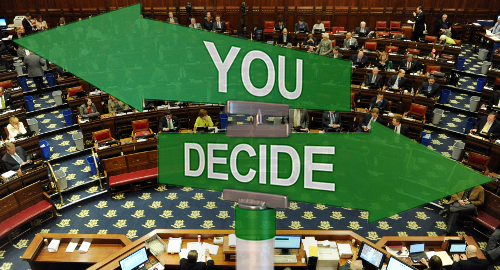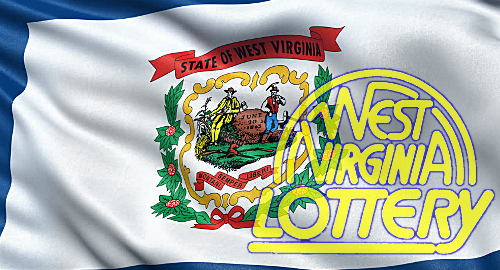The daughter of Curlin will turn back in distance to run in the seven-furlong Inside Information Stakes (G2) at Gulfstream March 18. Curlin’s Approval will face seven others in the $200,000 stakes.
Monthly Archives: March 2017
Keno lottery games coming to North Carolina this fall
North Carolina’s state-run lottery is expanding its gambling options with a new game starting this fall that could attract younger players and satisfy the thirst of legislators seeking more money for education initiatives.New Lottery Game, North Carolina, Keno
Michigan Lottery apologizes for costly game gaffe
A technical error during Monday night’s Michigan Daily 3 and Daily 4 drawings told players it was a special bonus drawing, which meant even more prize money for those with the winning numbers.Michigan, Error, Technology, Broadcast, Television, Drawing
Terra Promessa Puts Oaklawn Form on the Line in Azeri
Unbeaten in five starts at the Arkansas track, Terra Promessa puts her status as the house horse on the line against six challengers in the $350,000 Azeri Stakes (G2) going 1 1/16 miles March 18.
Finest City Takes on Vale Dori in Santa Margarita
Seltzer Thoroughbreds’ Finest City, the champion female sprinter of 2016, is far from a one-trick mare.

Connecticut committee passes buck on competing casino bills
A Connecticut legislative committee wants someone else to decide which of the state’s competing casino expansion bills should go forward.
On Wednesday, the General Assembly’s Public Safety and Security Committee approved two different casino expansion bills by large margins following minimal debate, almost as if the legislators were trying to get these hot potatoes off their desks and onto someone else’s as fast as humanly possible.
In fact, legislators freely admitted that their votes were intended to allow the full House and Senate to weigh in on the proposals, both of which carry the potential for significant ramifications above and beyond their stated language.
The Senate bill would approve the state’s two gaming tribes opening a joint venture casino off tribal lands in the East Windsor area. The Mashantucket Pequot and Mohegan tribes, which operate the Foxwoods and Mohegan Sun casinos, respectively, say the third casino is necessary to compete with the MGM Resorts casino being built just across the border in Springfield, Massachusetts.
Lows Acquire Pioneerof the Nile Colt for $1 Million
A Pioneerof the Nile colt produced a healthy return on his original purchase price when sold to Robert and Lawana Low for $1 million during the March 15 second session of the Ocala Breeders’ Sales Company’s 2-year-olds in training sale.
American Anthem Carries Baffert's Rebel Stakes Hopes
Sham Stakes (G3) runner-up American Anthem has arrived for the purpose of making sure the Rebel Stakes (G2) remains trainer Bob Baffert’s out-of-town playground.

Welsh Player Dafydd Joseph Wins Entry to Vegas Championship Via UK Pub Poker League
This past weekend, the Nuts Poker League, a pub poker league in the UK, held their England/Wales National Finals at Grosvenor Casino in Coventry. It took more than 11 hours […]
The post Welsh Player Dafydd Joseph Wins Entry to Vegas Championship Via UK Pub Poker League appeared first on .
Union Rags Colt Brings $900,000
Agent Steve Young went to $900,000 to acquire a Union Rags colt from the family of Canadian champion Delightful Mary midway through the March 15 second session of the Ocala Breeders’ Sales Company’s 2-year-olds in training sale.
Best Strikes Again, Buys Arch Colt for $1.05 Million
Lawrence Best struck again at the seven-figure level at the Ocala Breeders’ Sales Company’s 2-year-olds in training sale, buying an Arch colt for $1,050,000 in the name of his OXO Equine.

Colombia to block 325 gambling domains to aid regulated market
Colombia has announced plans to block over 300 online gambling domains in a bid to boost interest in its regulated online gambling market.
Last week, Colombia’s gambling regulator Coljuegos asked the country’s Ministry of Information Technologies and Communications to block 325 online gambling domains from beaming their signals into the country. The naughty domain list is a who’s who of the online industry, including familiar names like 888, Bet365, PokerStars, Unibet and William Hill.
Colombia has taken a more proactive route to online gambling regulation than most of its Latin American counterparts, having approved online gambling legislation last October. But a punitive 19% value added tax applied to player deposits left most operators convinced that applying for a Colombian license was a waste of time.
The Colombian government demonstrated a rare willingness to respond to operator concerns by scrapping the VAT requirement in December but the change failed to result in the expected flood of new license applications. Coljuegos president Juan Pérez Hidalgo recently complained that unauthorized online operations were depriving the government of over $100m in lost revenue on an annual basis.

WPT Rolling Thunder Roars into Final Table, Mike Del Vecchio Leads
WPT Rolling Thunder, happening now at the Thunder Valley Casino Resort outside of Sacramento, is the last stop on the California tour. After Tuesday’s play, the tournament is down to […]
The post WPT Rolling Thunder Roars into Final Table, Mike Del Vecchio Leads appeared first on .

Coral punter loses court fight over Rangers’ relegation wager
UK bookmakers Ladbrokes Coral have prevailed in their fight with a punter who claimed Coral had unfairly refused to honor a £250k winning wager on Glasgow Rangers’ relegation.
In September 2011, punter Albert Kinloch (pictured) walked into a Coral betting shop and placed a £100 wager at 2,500:1 odds that Rangers would be relegated at the conclusion of the Scottish Premier League season. Five months later, the high-performing but financially struggling team was forced into administration and required to play the following season in the Scottish Football League’s Third Division after re-emerging under new management.
Kinloch believed he was owed £250k while Coral claimed Rangers hadn’t really been relegated, at least, not in the way Coral intended when it posted the team’s relegation odds. Both sides lawyered up and made arguments in the Court of Session in Edinburgh in January.
On Wednesday, Judge Lord Bannatyne addressed the parties’ different definitions of ‘relegate’ by saying that “the reasonable man is not only directed but driven to the rules of a particular sports when placing a bet in a sporting context. The natural and ordinary meaning of a sporting term is the definition of that term within the rules of the sport.”
$1.7 Million Congrats Filly New Sale Topper at OBS
A Congrats filly was purchased by Kerri Radcliffe for $1.7 million to become the new sale topper at the Ocala Breeders’ Sales Co.’s March sale of 2-year-olds in training.

West Virginia Dems want to give racinos online gambling options
West Virginia has become the latest US state to seek legal online gambling within its borders.
Tuesday saw the introduction of HB 3067 into the West Virginia House of Delegates. The bill, introduced by five Democratic delegates, seeks to authorize the West Virginia Lottery Commission to oversee the licensing and regulation of online poker, casino and race betting options for local gamblers.
HB 3067 limits potential online gambling licensees to the state’s four racetrack casino operators, who are currently authorized to offer video lottery terminals and table games at their facilities. Licenses would cost $50k and online licensees would pay 14% tax on their gross gaming revenue.
The bill allows for the state’s licensees to partner with online gambling technology providers, but operators will be required to market their online gambling portals using their own brand name, “not the brands of third parties,” to ensure that “actual control and supervision remains with the licensed entity.”
Groom Elite Program Offers Two Courses
Groom Elite director Dr. Reid McLellan will offer two courses in April at Lone Star Park and Magdalena Farms near Lexington.
Charles Town Cancels Wednesday Card
Due to the lasting effects of the winter weather to hit the area March 14 and the low wind chills anticipated for this evening, Hollywood Casino at Charles Town Races has cancelled its live racing program scheduled for March 15.

Casino Canberra’s $5.8M loss in 2016 puts Aquis in a tough spot
Tony Fung’s Aquis Entertainment is off to a rough start this year.
This week, the Casino Canberra reported a loss of AUD7.7 million (USD5.84 million) for 2016, which, in turn, puts Aquis in a negative position with liabilities of AUD31.3 million (USD23.76 million) outstripping the casino operator’s assets by AUD14,300 (USD10,856).
The company’s 2016 financial statements, filed at the Australian Stock Exchange, showed that its gambling revenue was up 21 percent to AUD22 million in 2016. Food and drink revenue was also up for the year at AUD2.23 million, while spend per visitor was up 33 percent.
To be fair, Casino Canberra is not expected to be back in black this year. The casino, which was acquired by Aquis in 2014 for AUD6 million, had to be refurbished—to the tune of AUD13.6 million—before it fully opened its doors to public. The refurbishment works were conducted in the first half of 2016, which saw the casino’s operations moving to a temporary facility with only 16 gaming tables, offering minimal food and beverage service as well as reduced levels of visitation due to the smaller facility.

Respin LLC signs first major contract with Tier-1 US casino operator to launch into the US market
Nektan PLC (AIM: NKTN), a leading international B2B gaming solutions and services provider, announces that Respin Games LLC (“Respin”), Nektan’s US operating subsidiary, has signed its first major contract with a Tier-1 US casino operator to launch its real money in-venue mobile games solution into the US casino market.
Rapid Games™, the casino gaming industry’s first and only independently certified Class II (Protected Tribal Gaming Category) in-resort Bring Your Own Device (“BYOD”) mobile platform, is being launched into a marquee casino in California by a Tier-1 US casino operator with a large footprint in both commercial and tribal markets in the US. Tribal gaming in North America is over a $30 billion annual revenue market (source: NIGC released data for June 2015).
Respin currently has a further five signed Letters of Intent to launch into multiple states in the US, with a strong pipeline of additional interested parties wishing to go live after the platform enters the market.
The Rapid Games™ platform will be completing third party certification in the coming weeks to also offer Class III games (Traditional Casino Slots), with unique machine count tracking technology, to manage numbers of games in-play by game class.